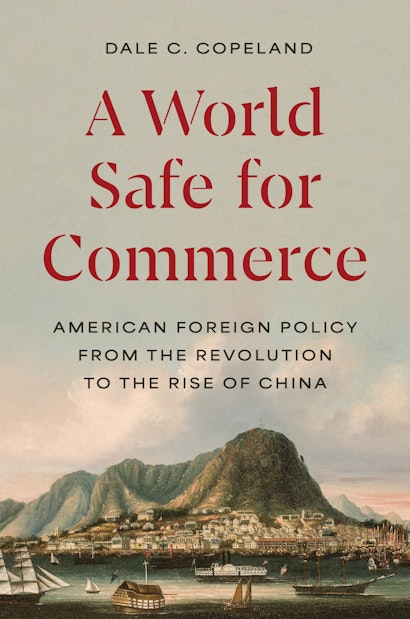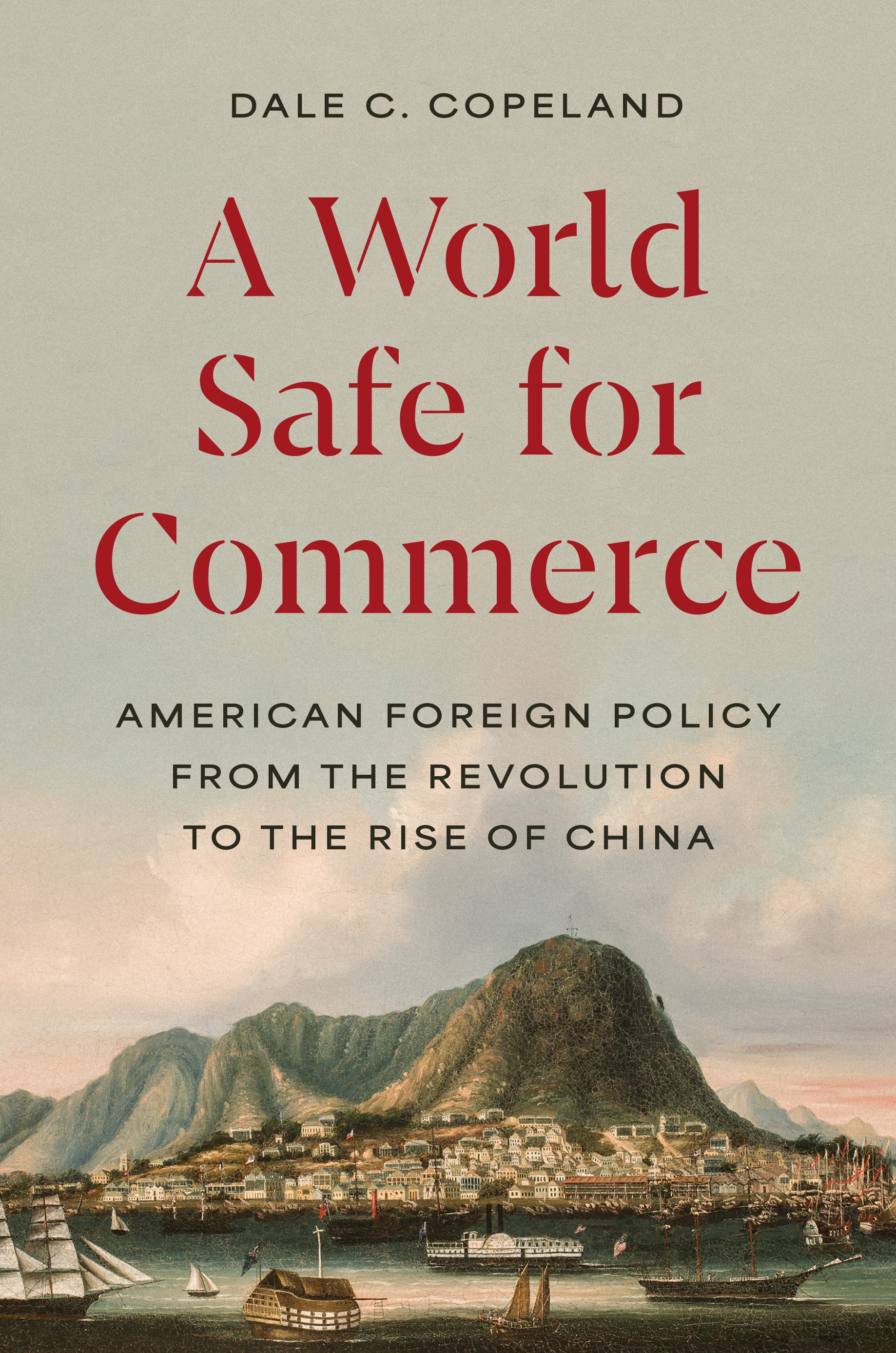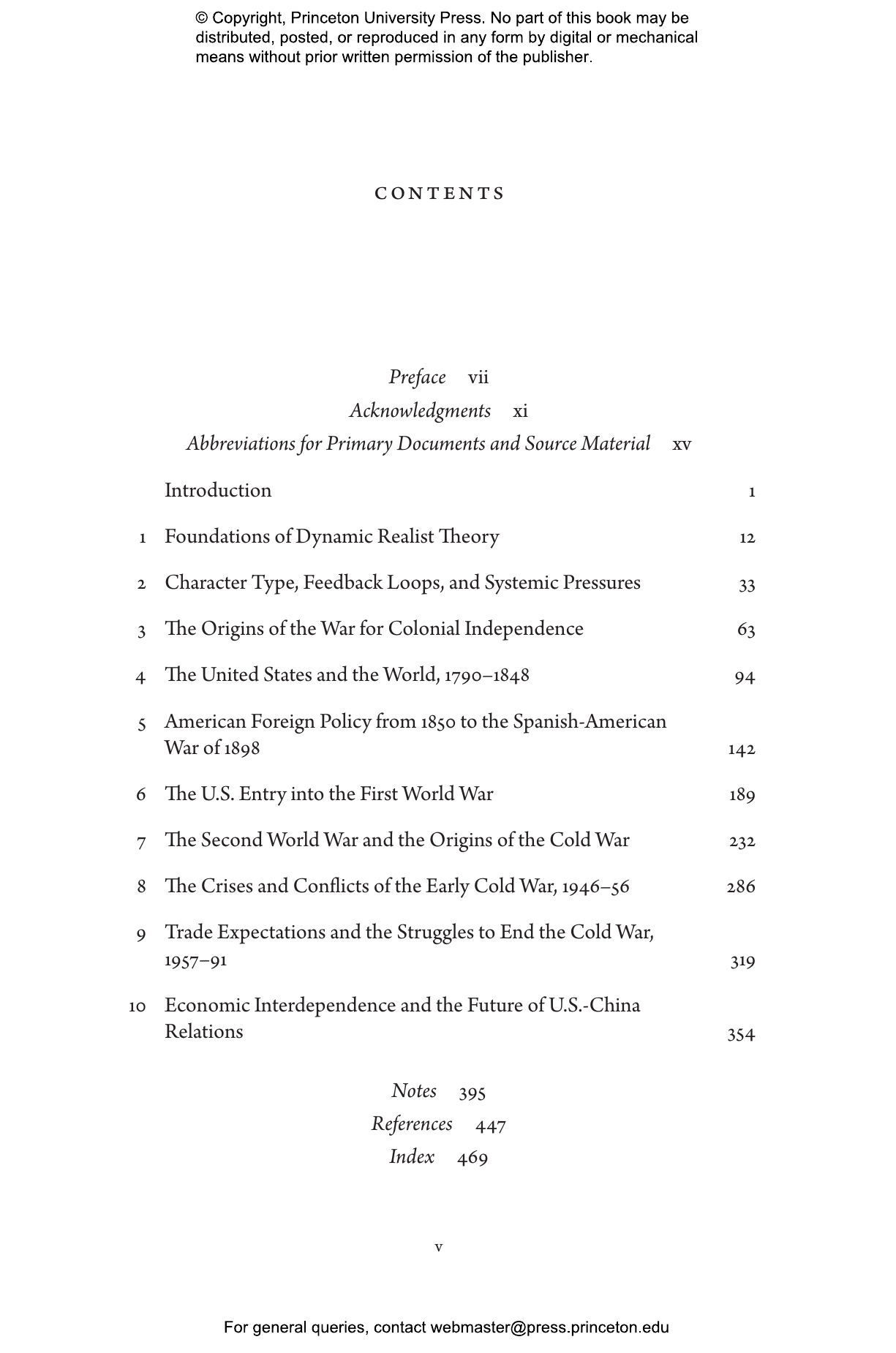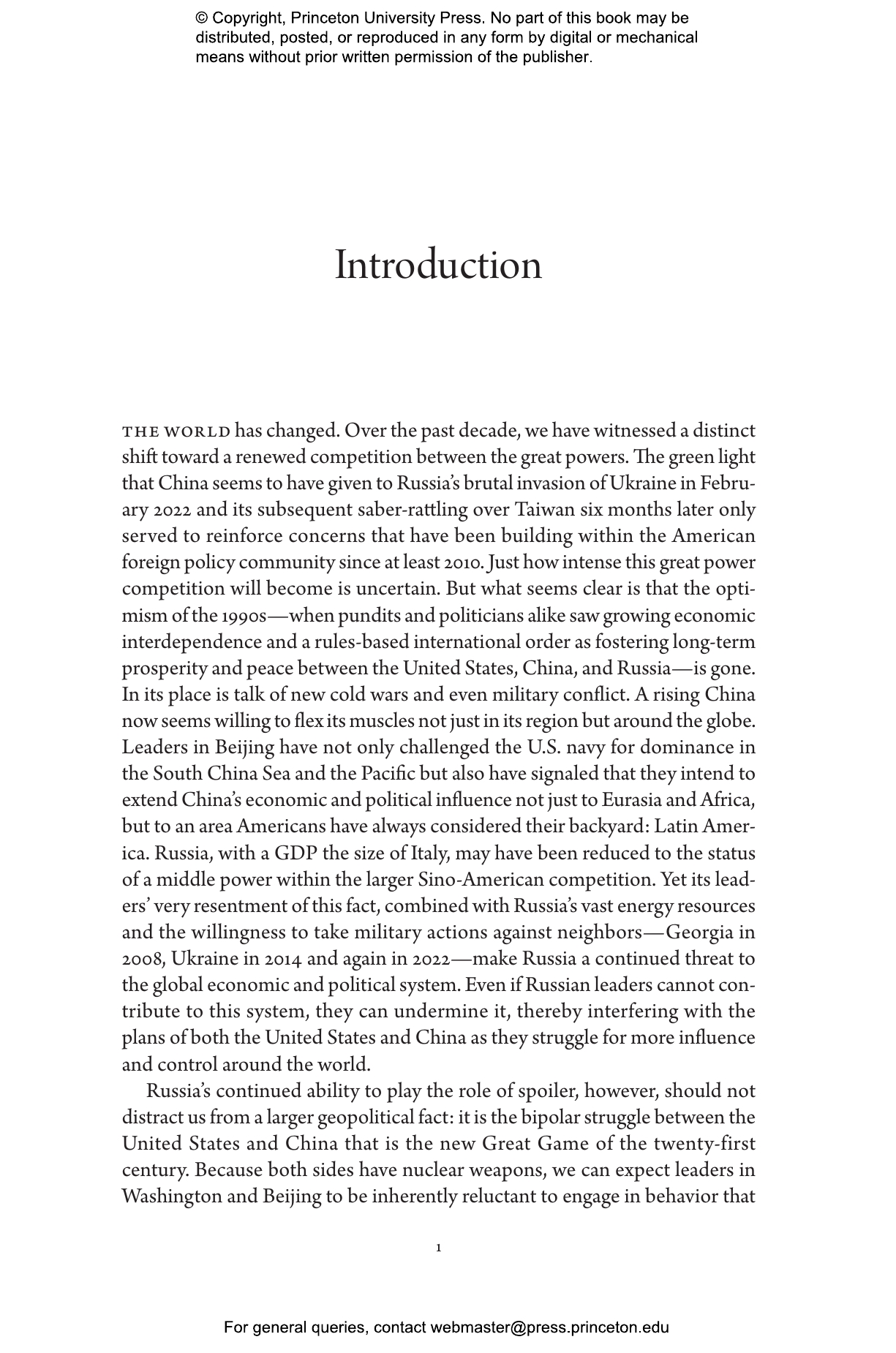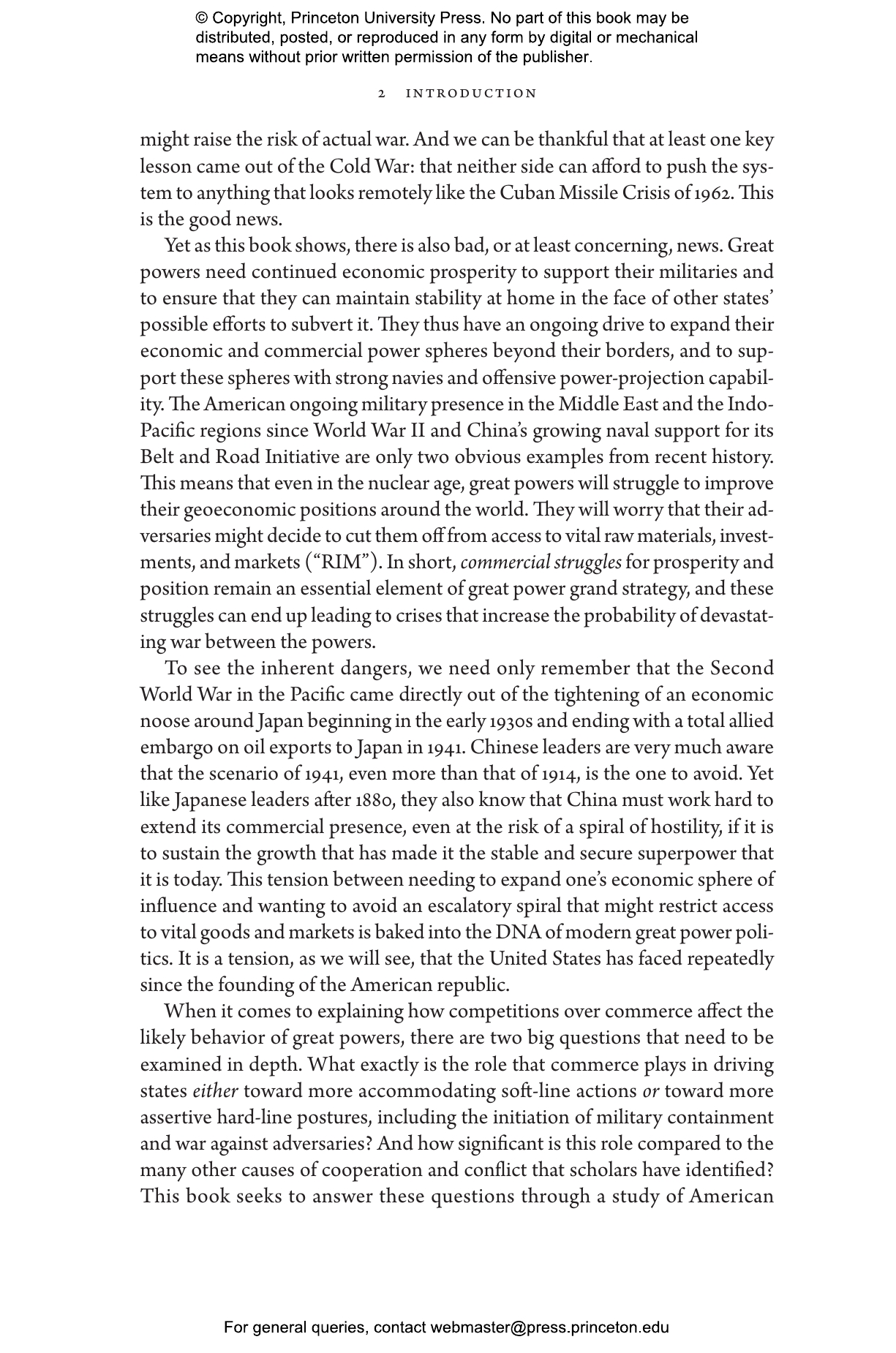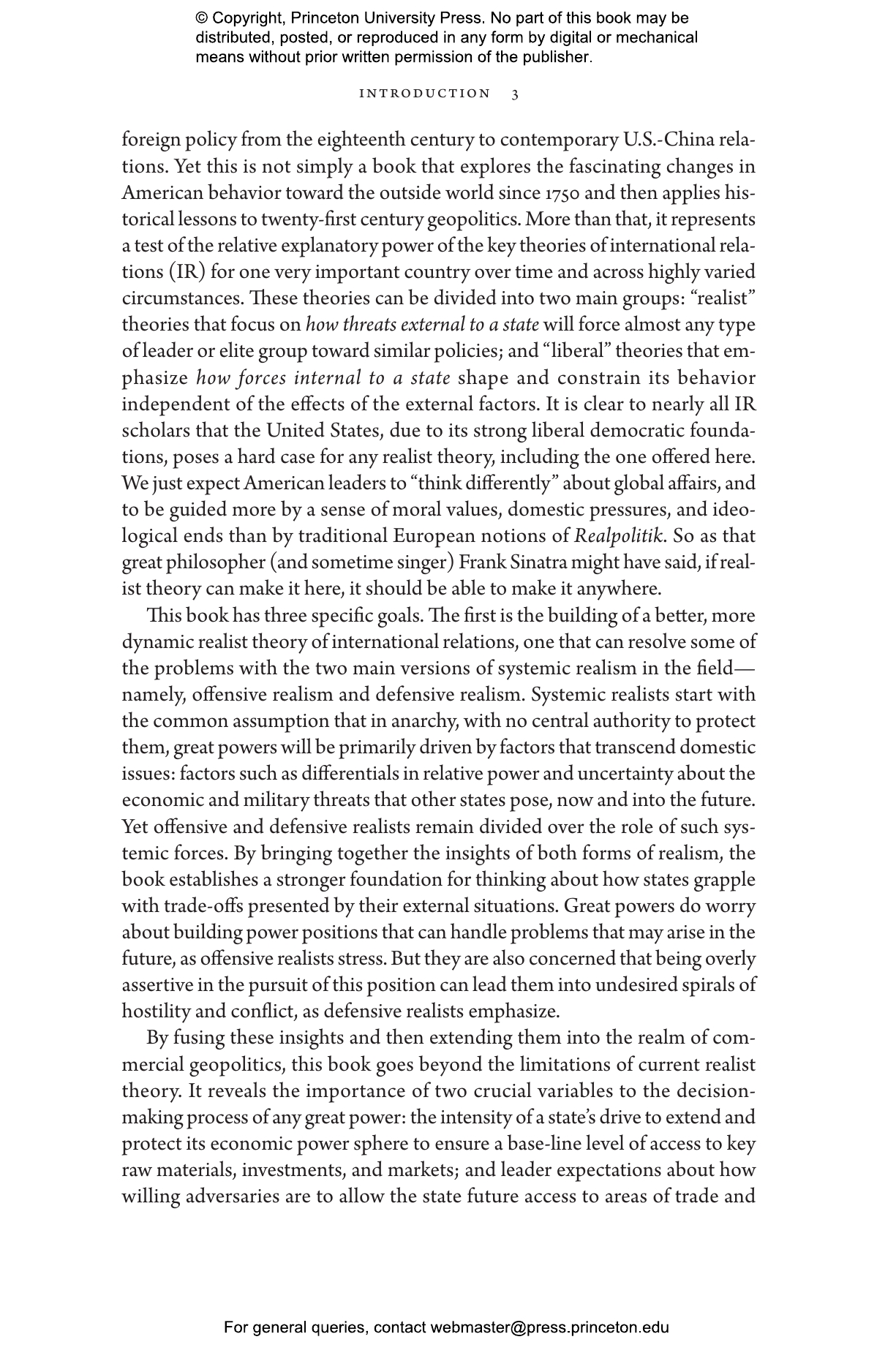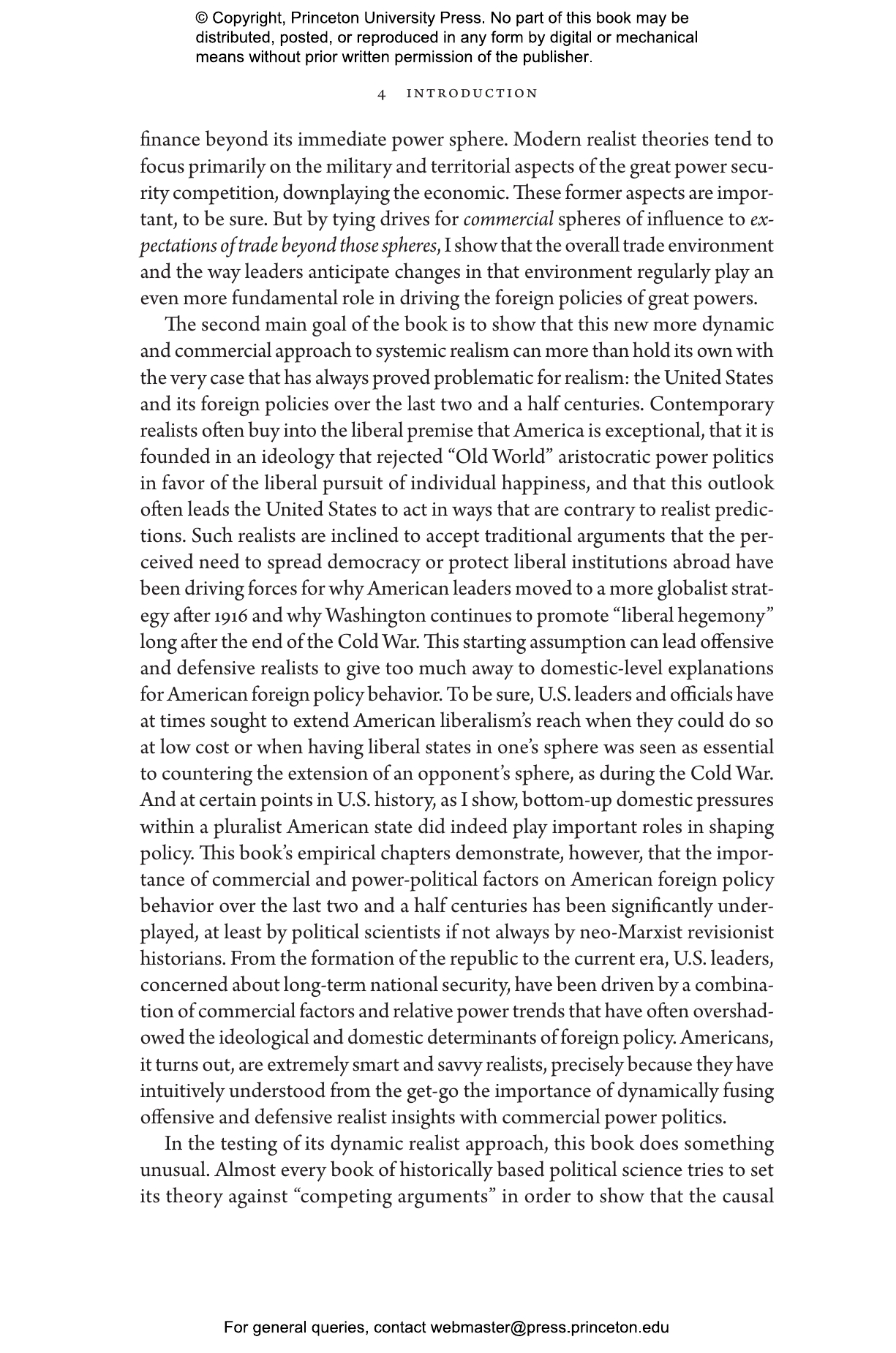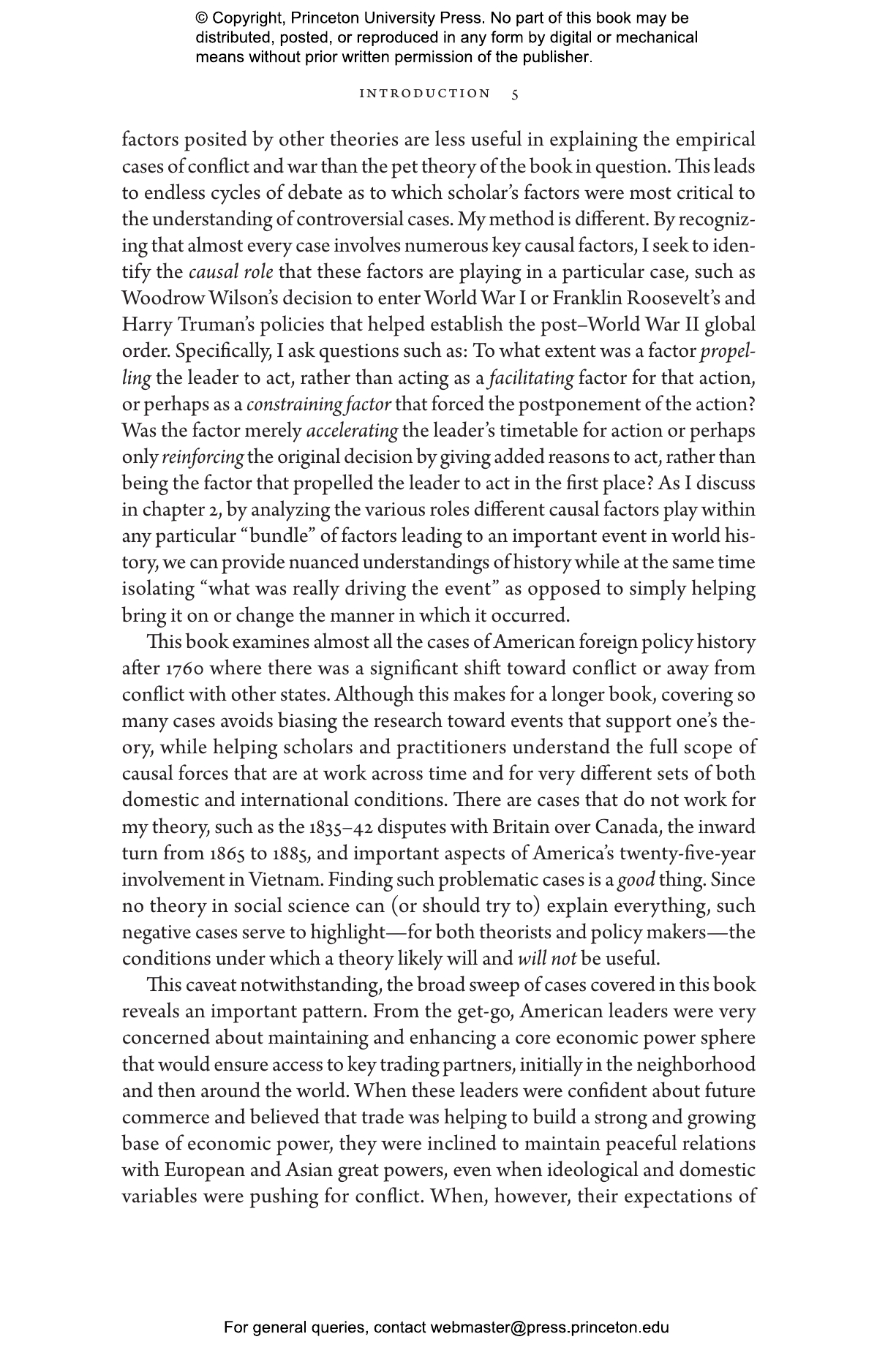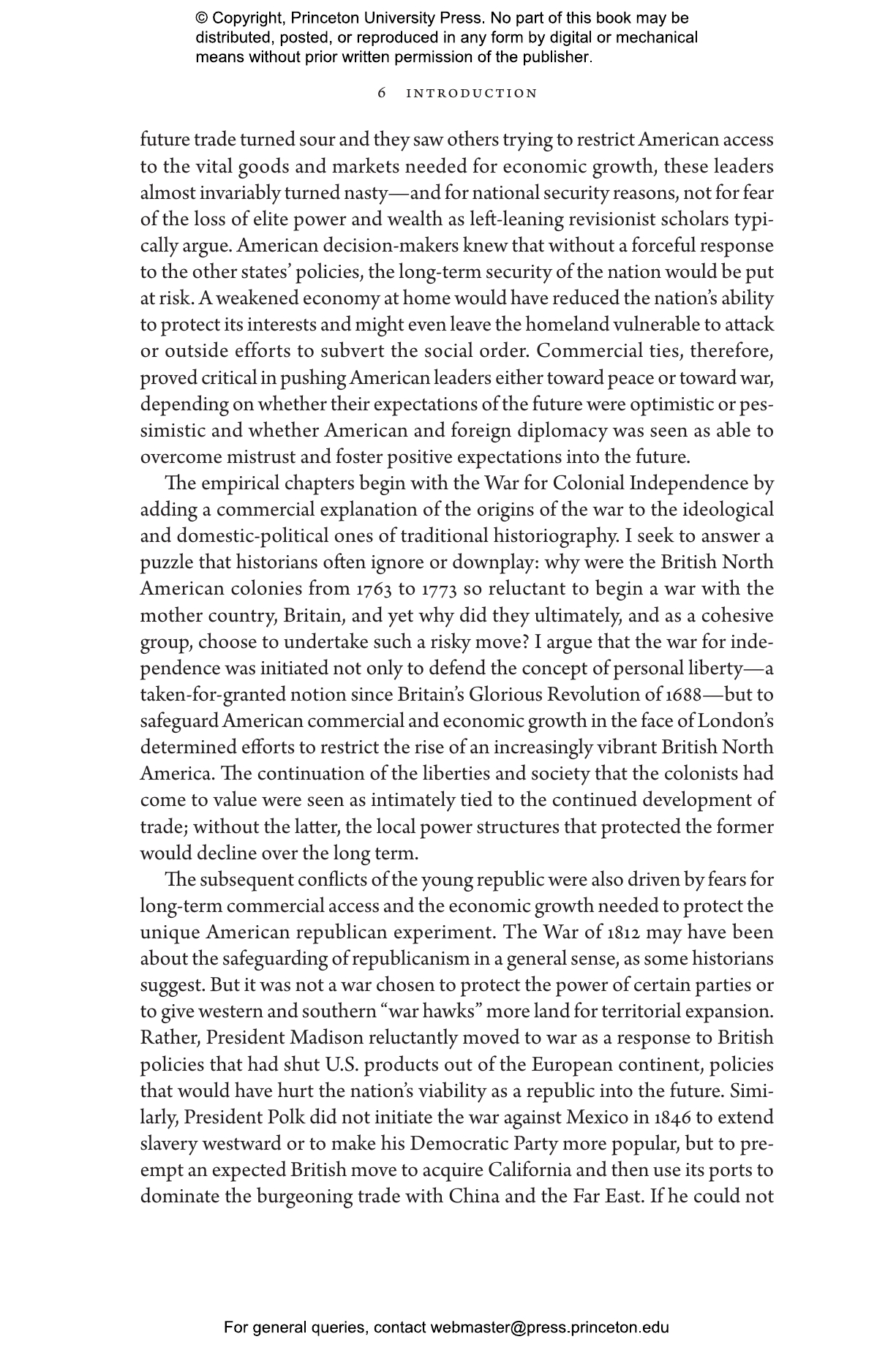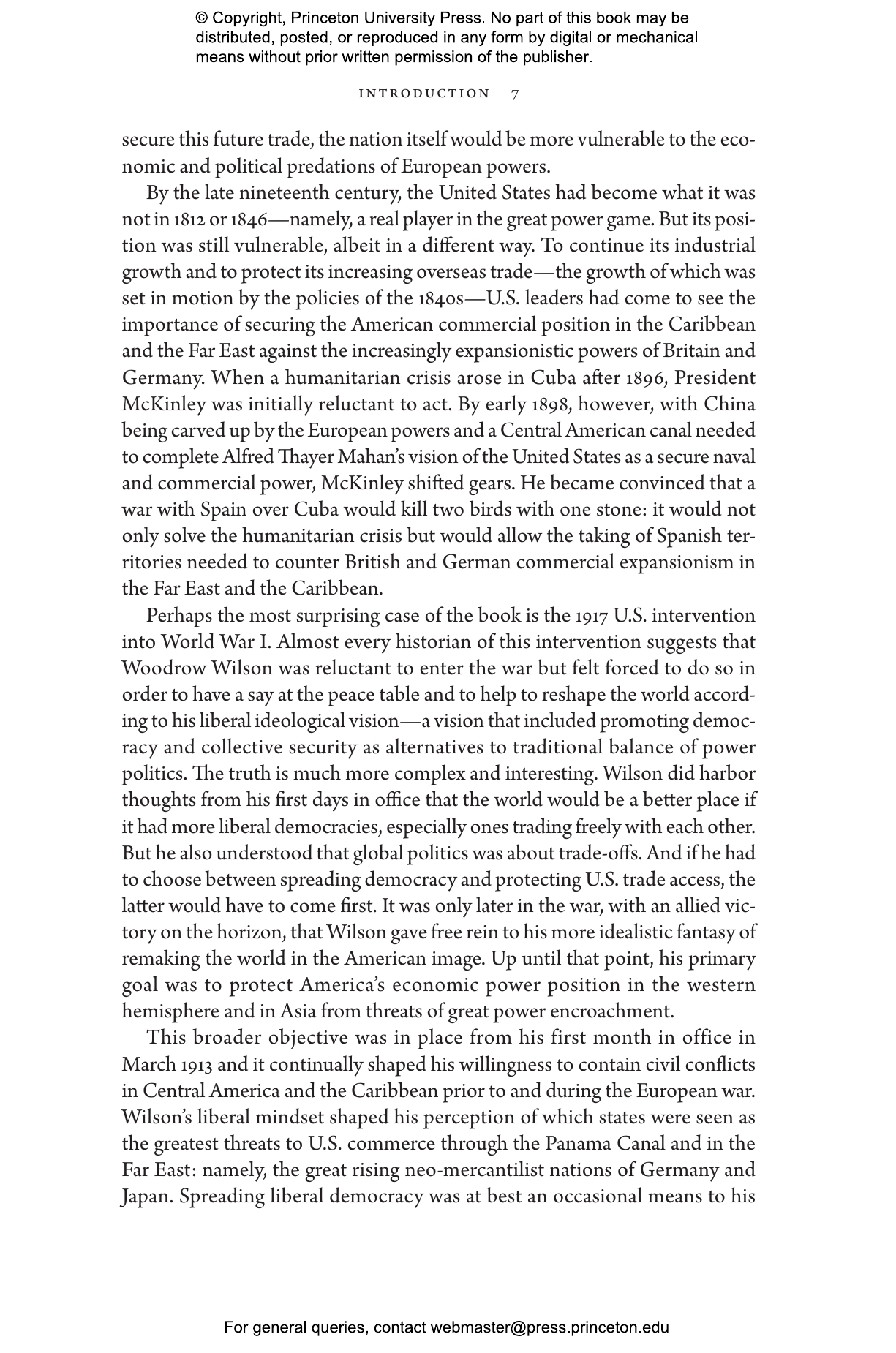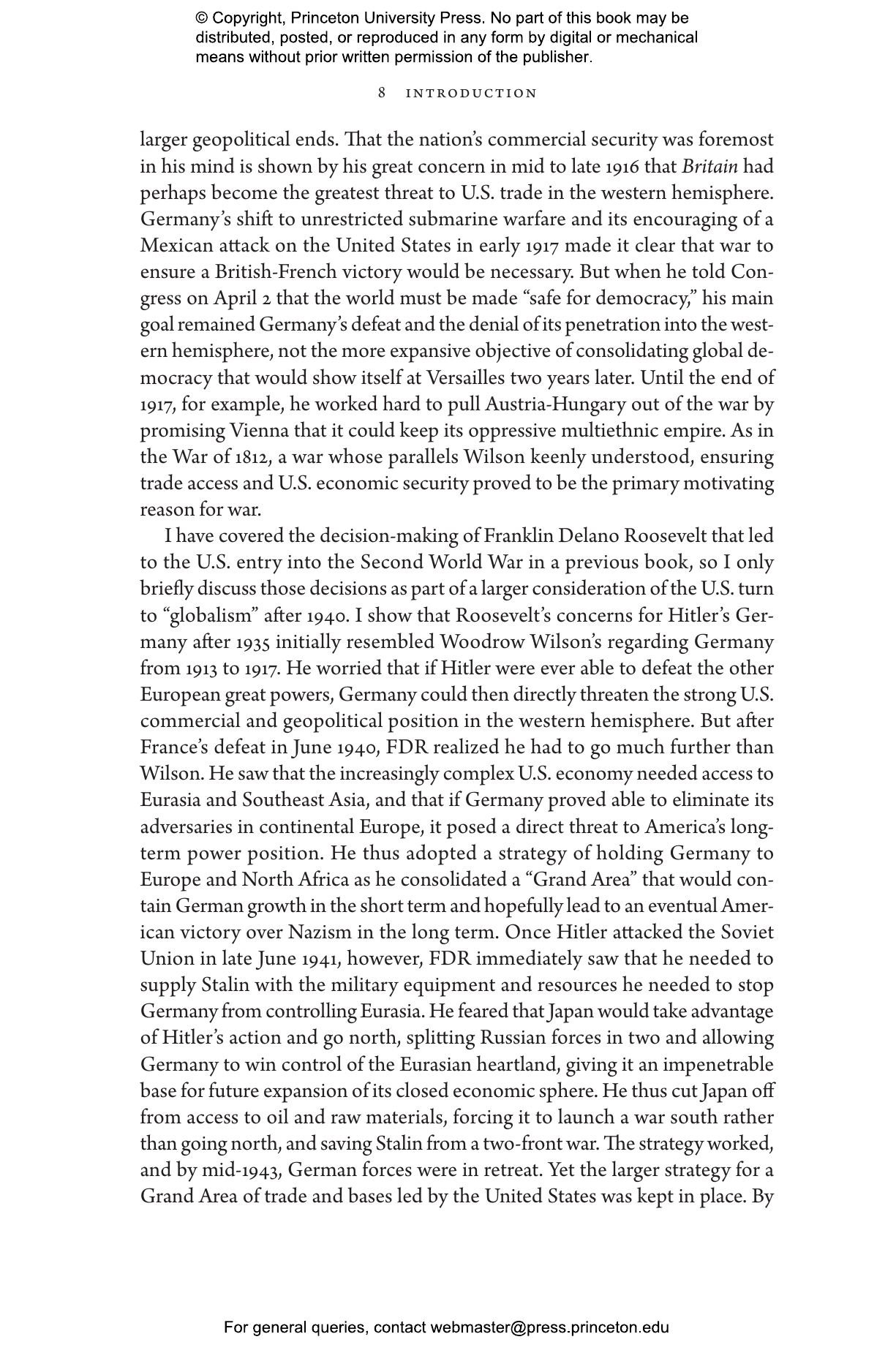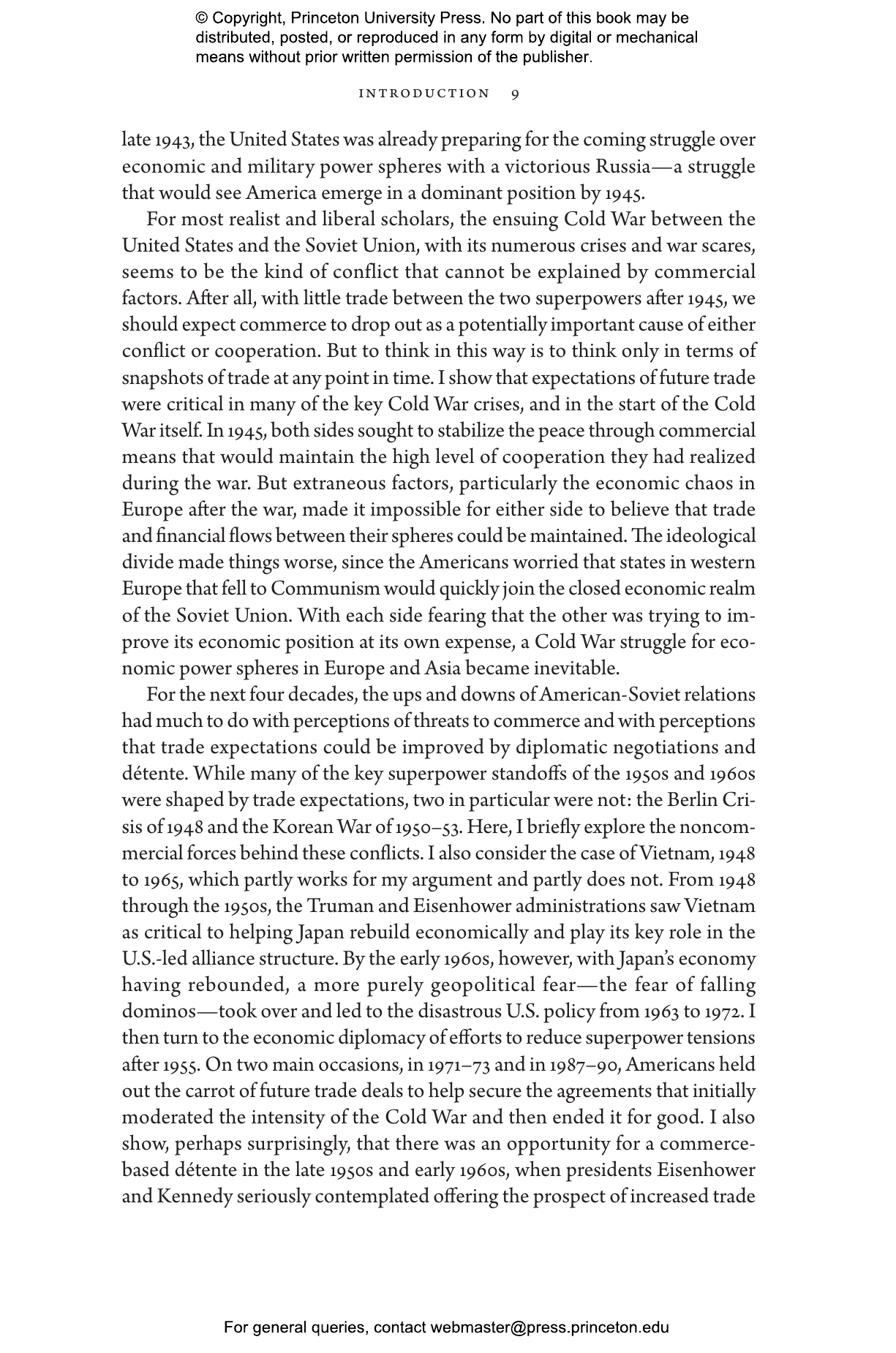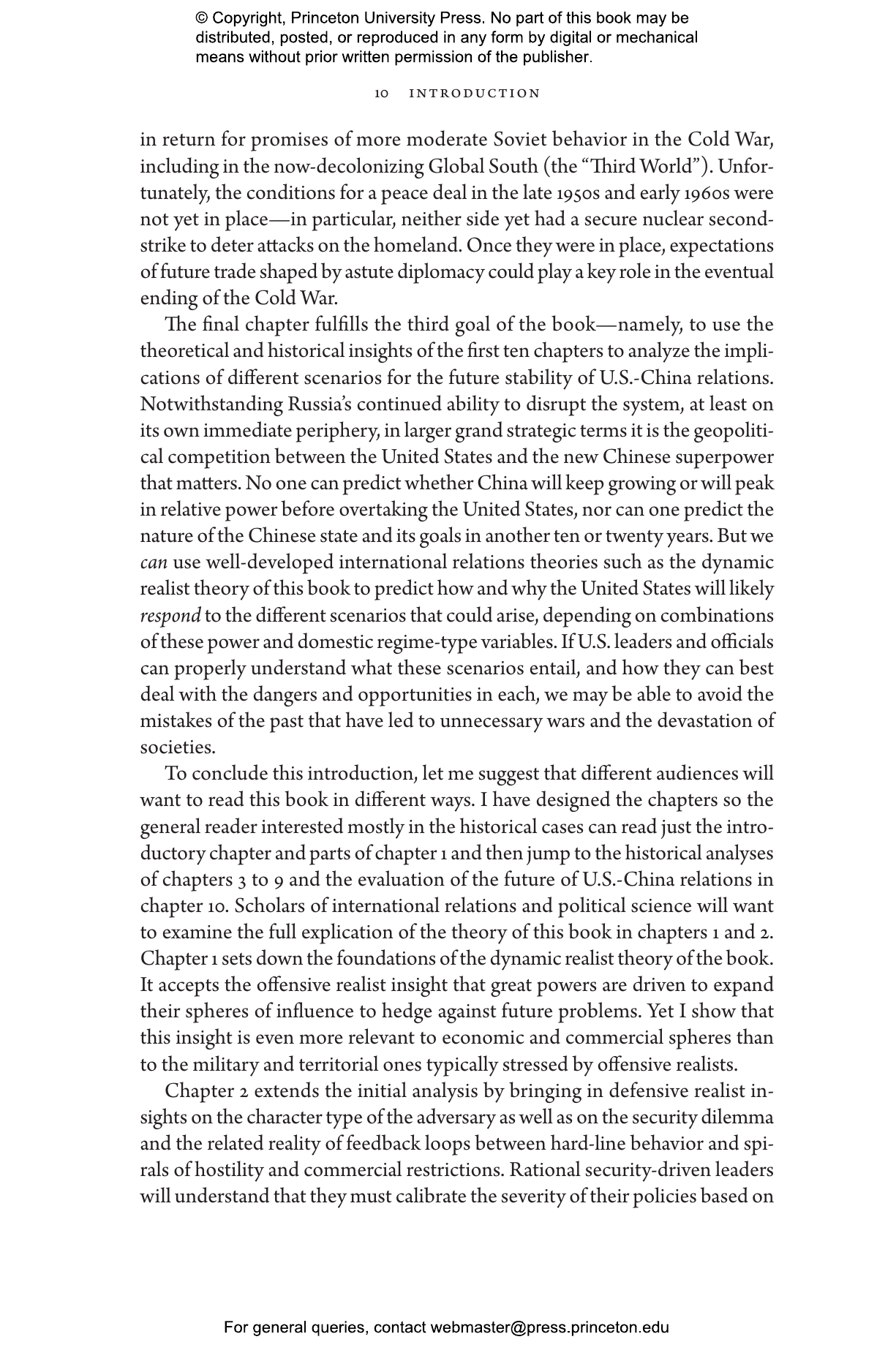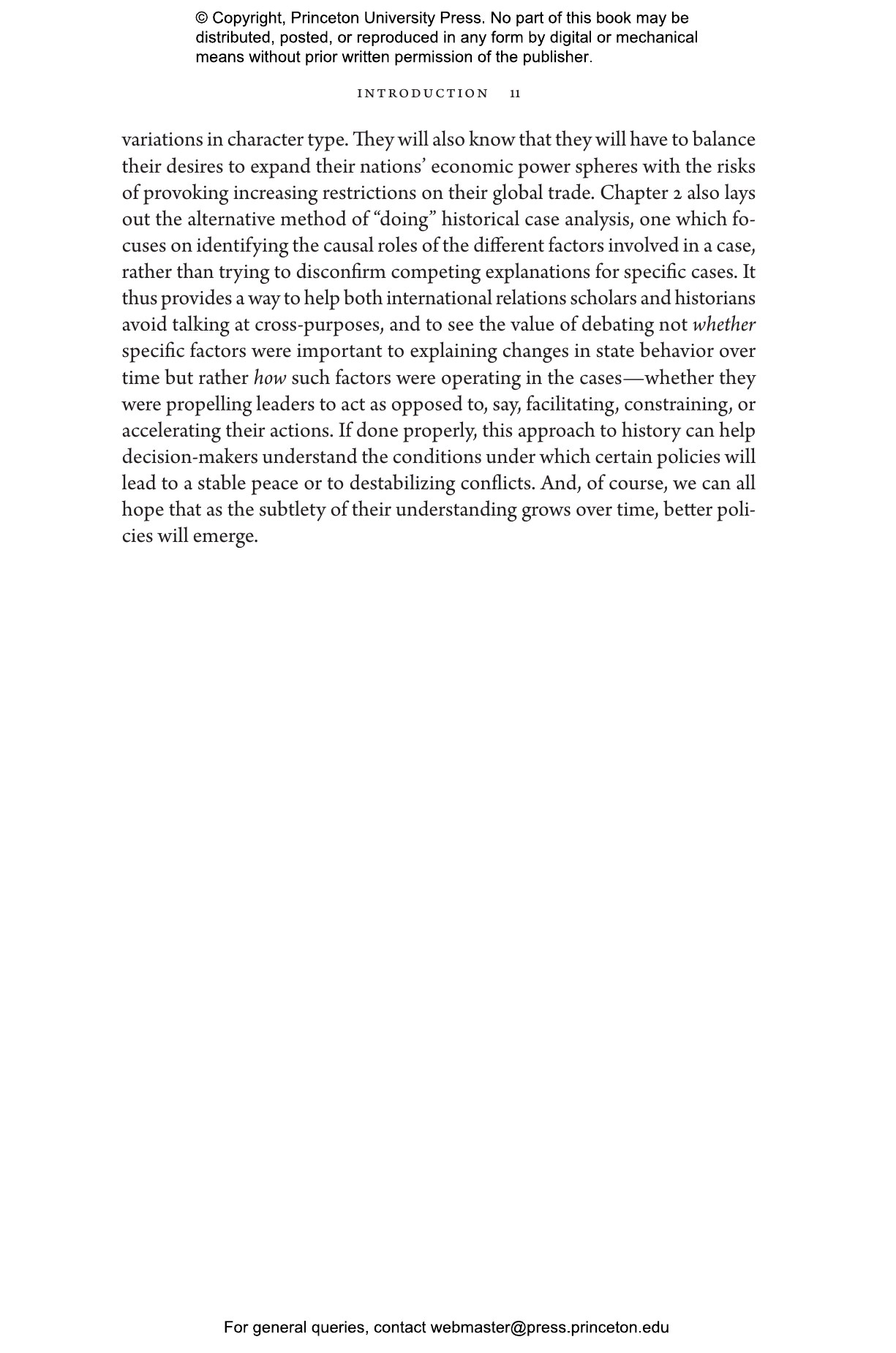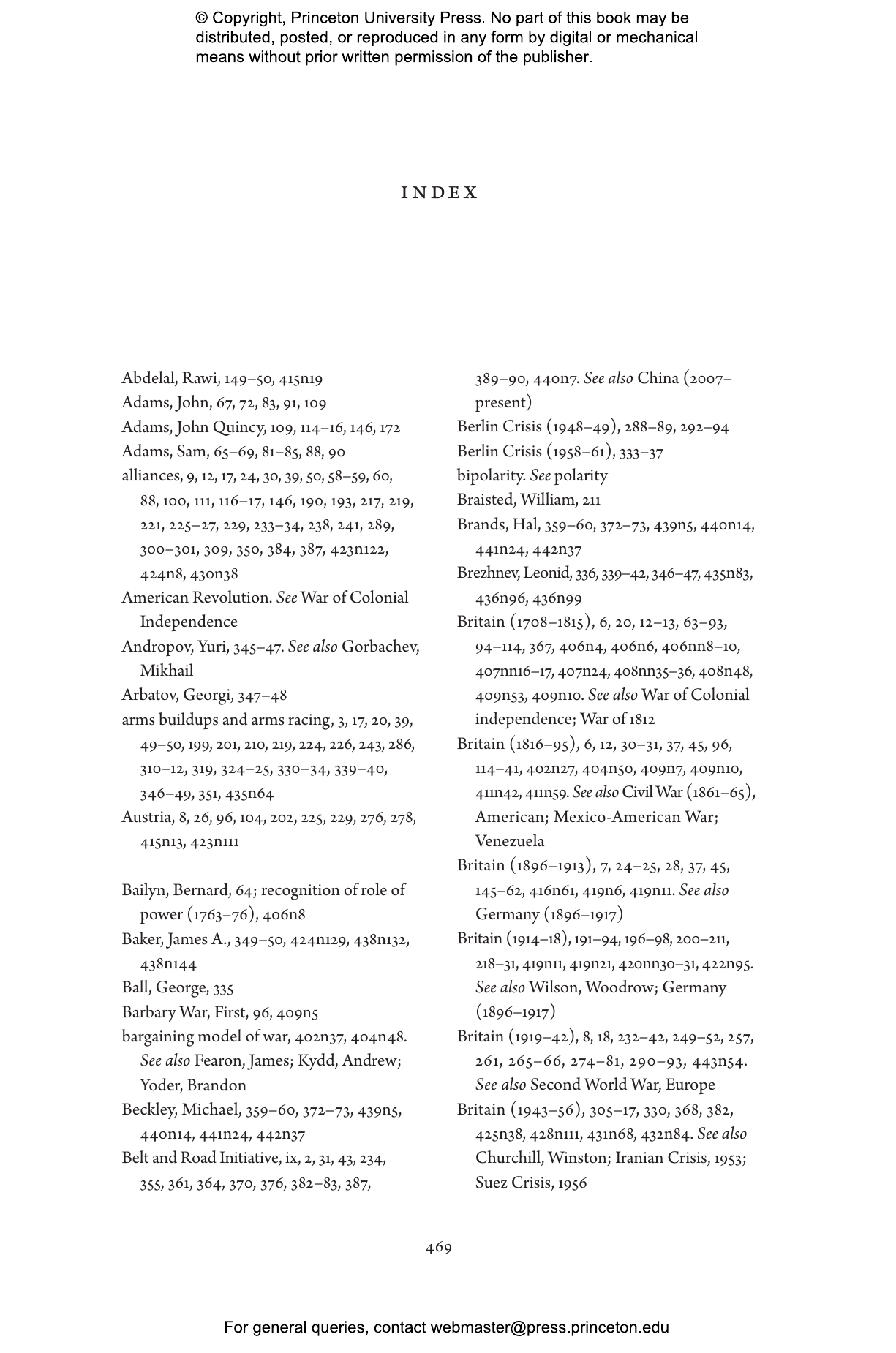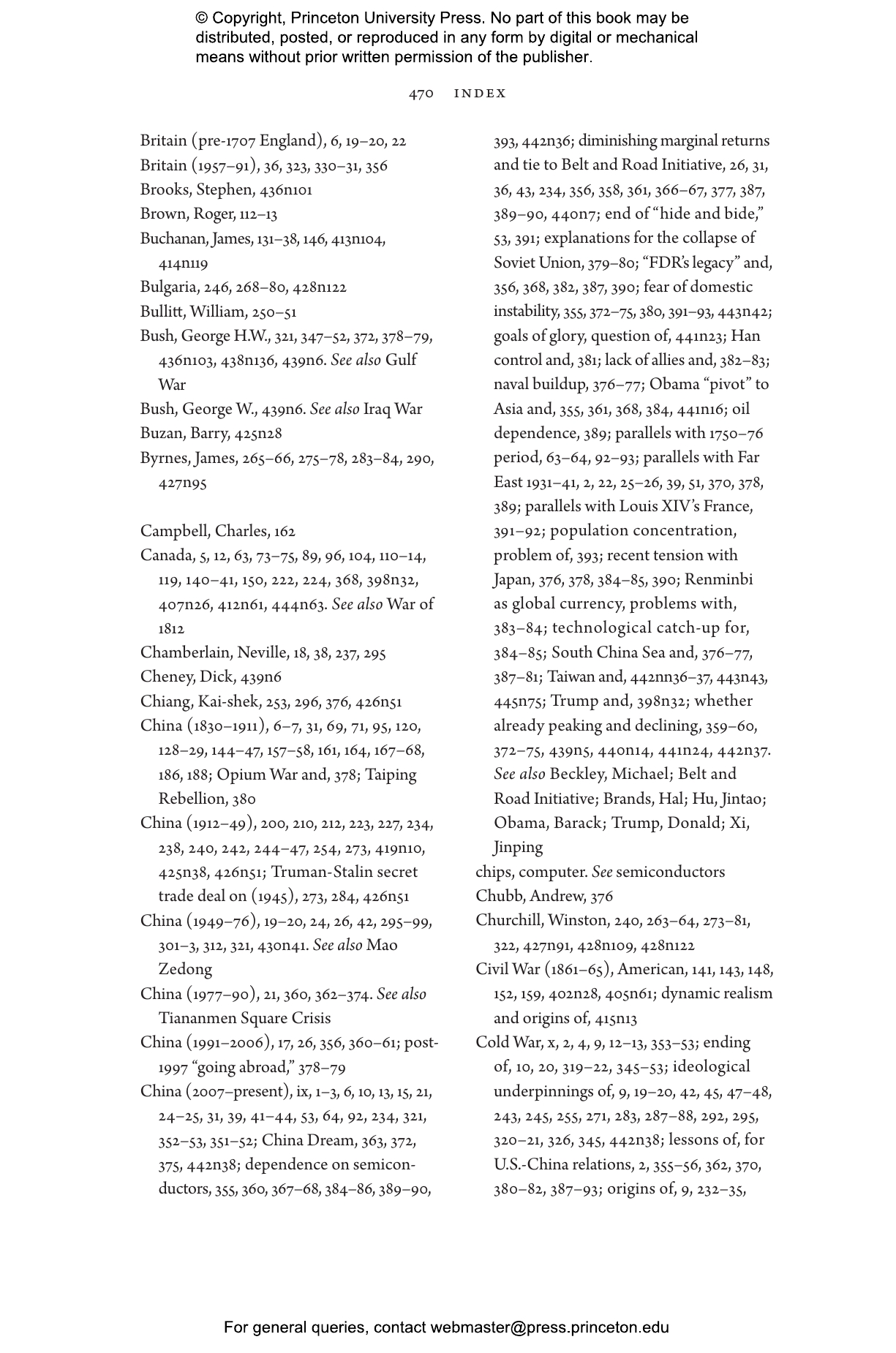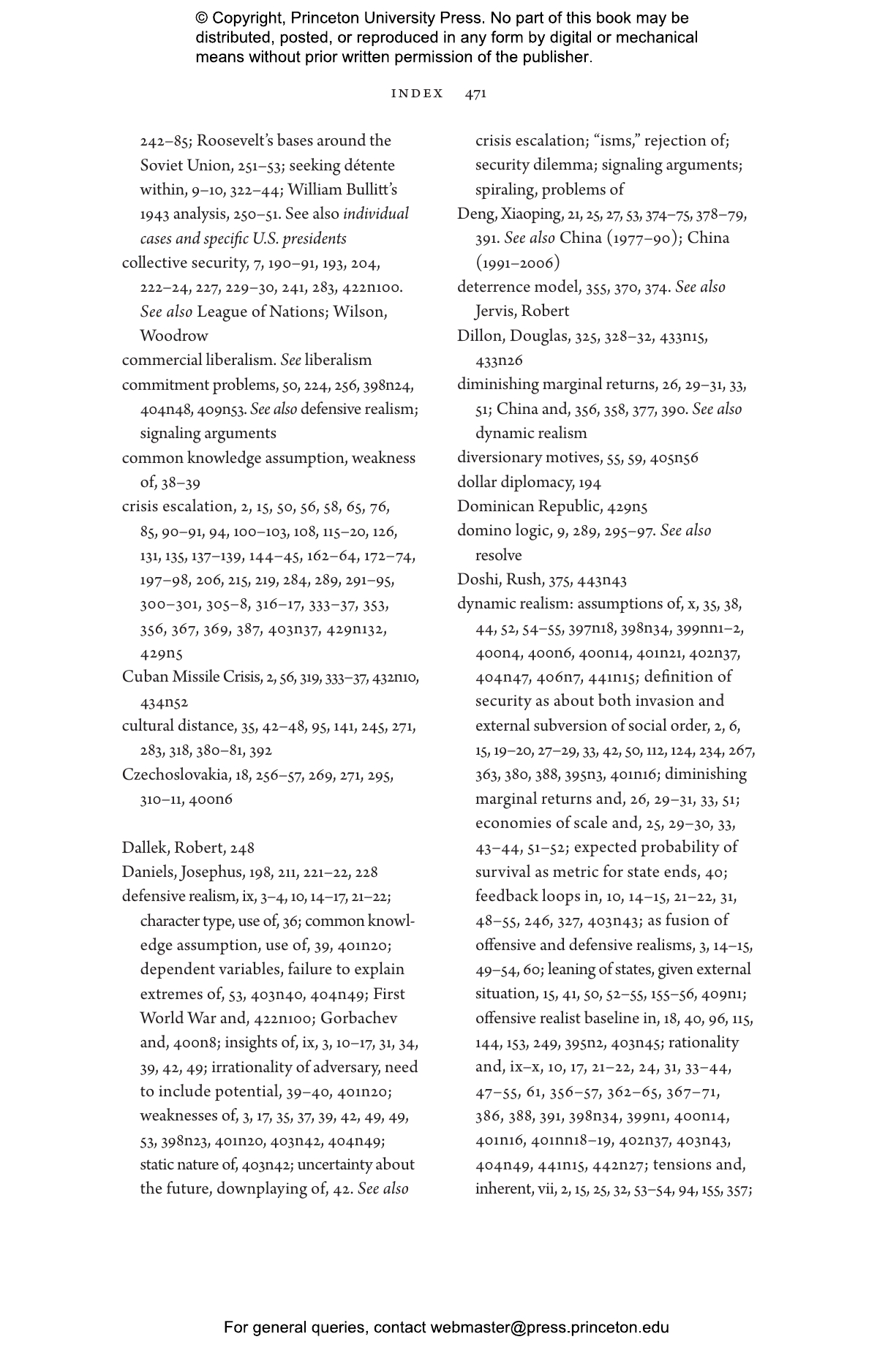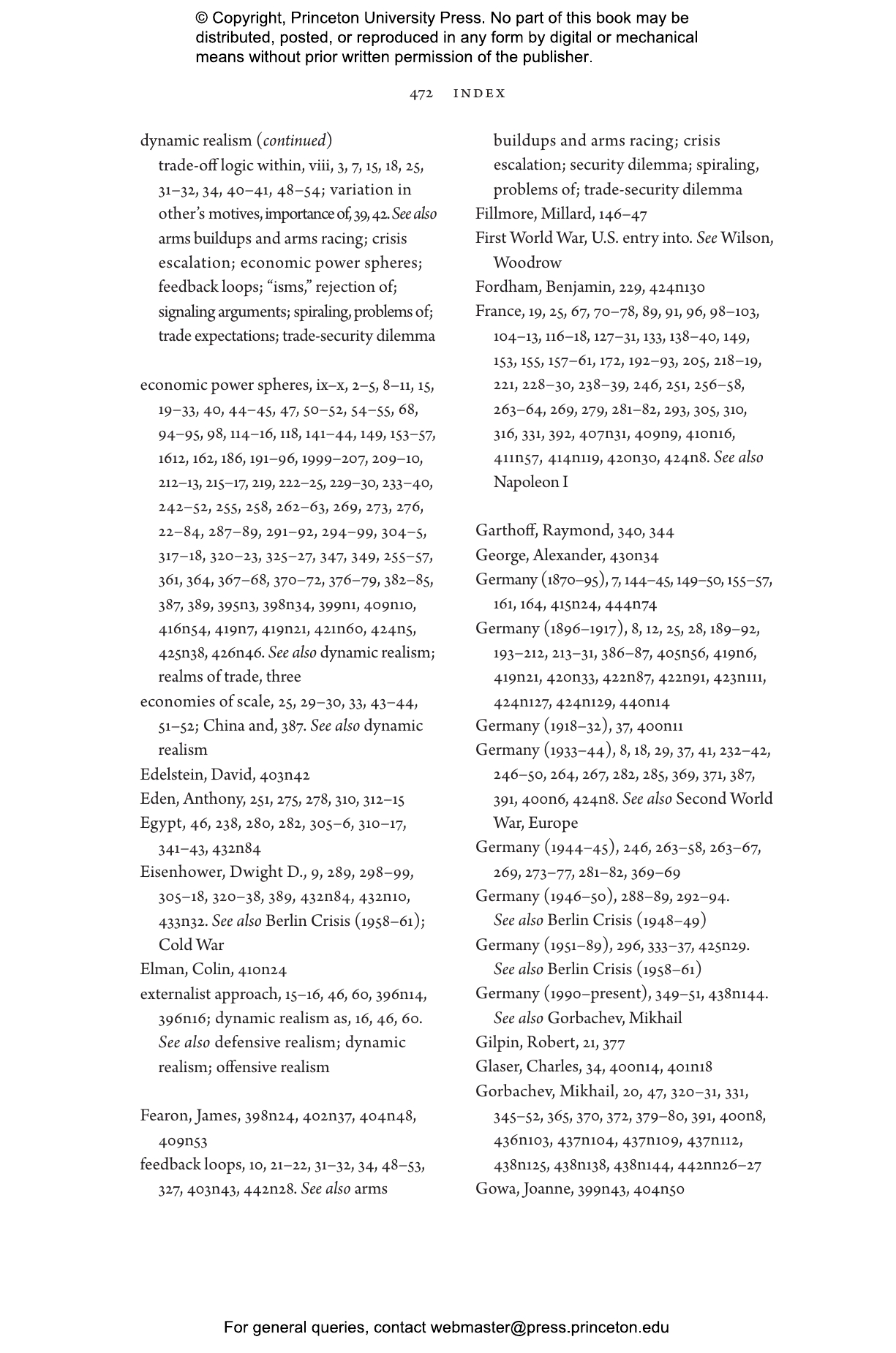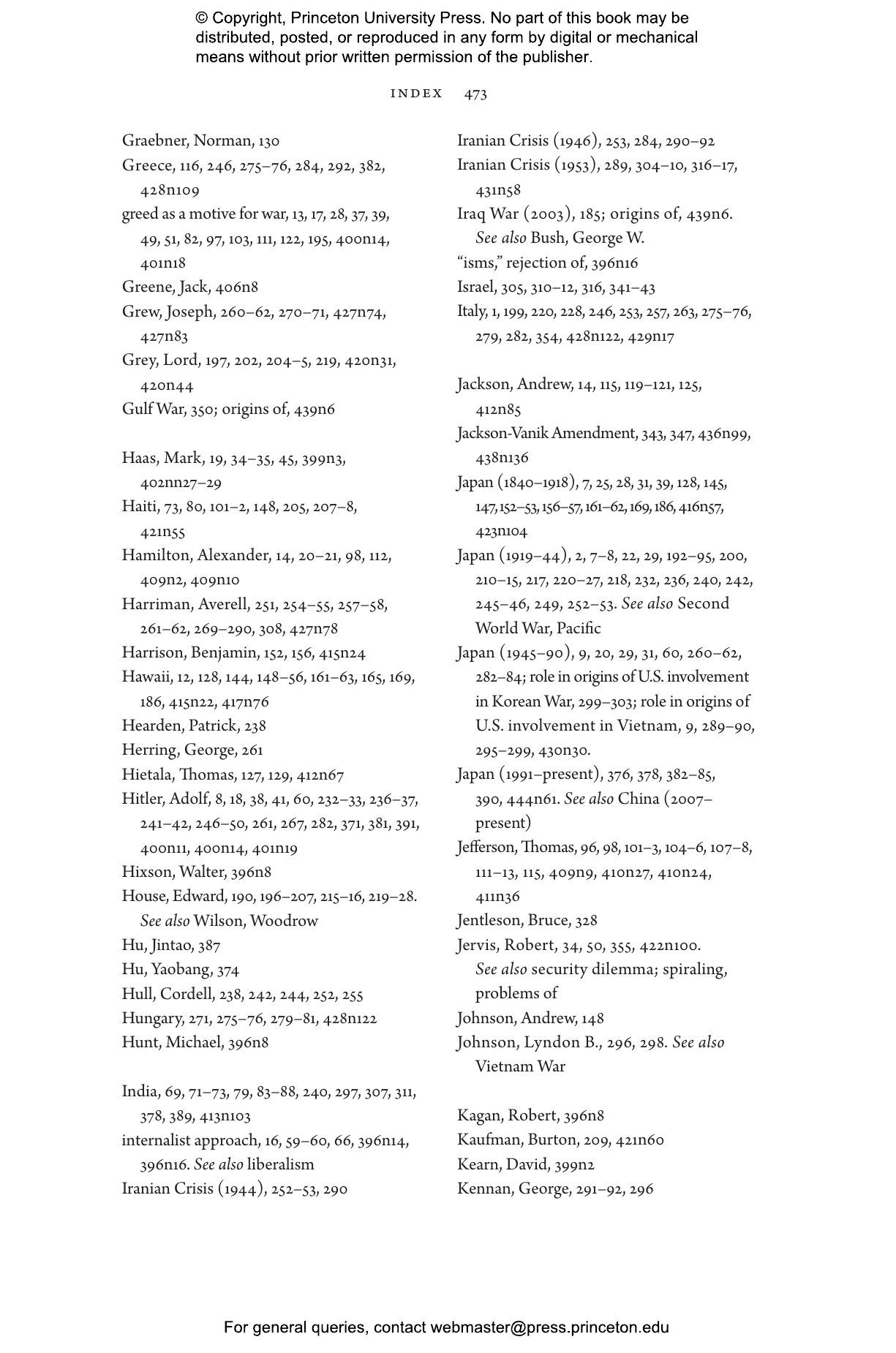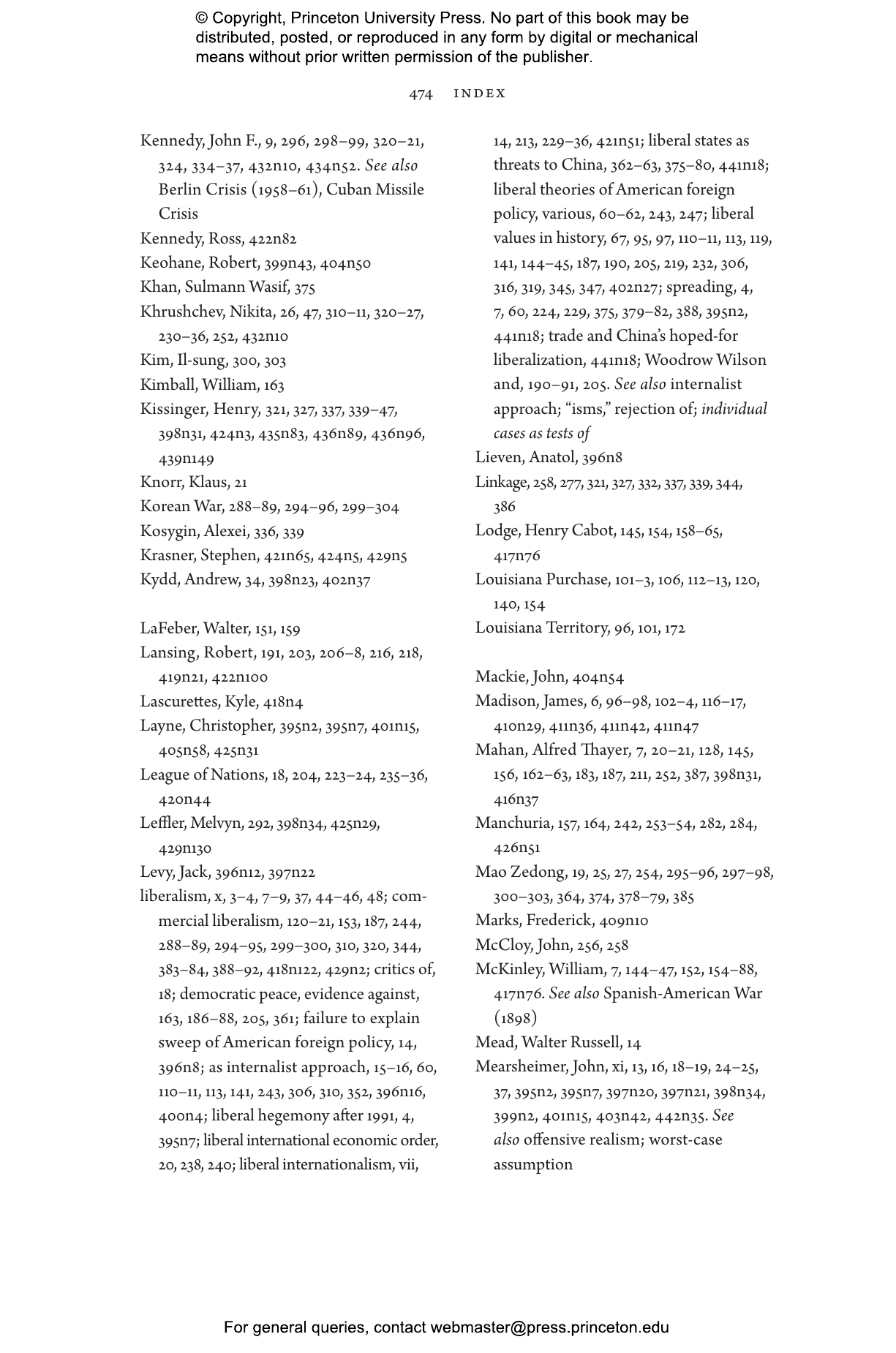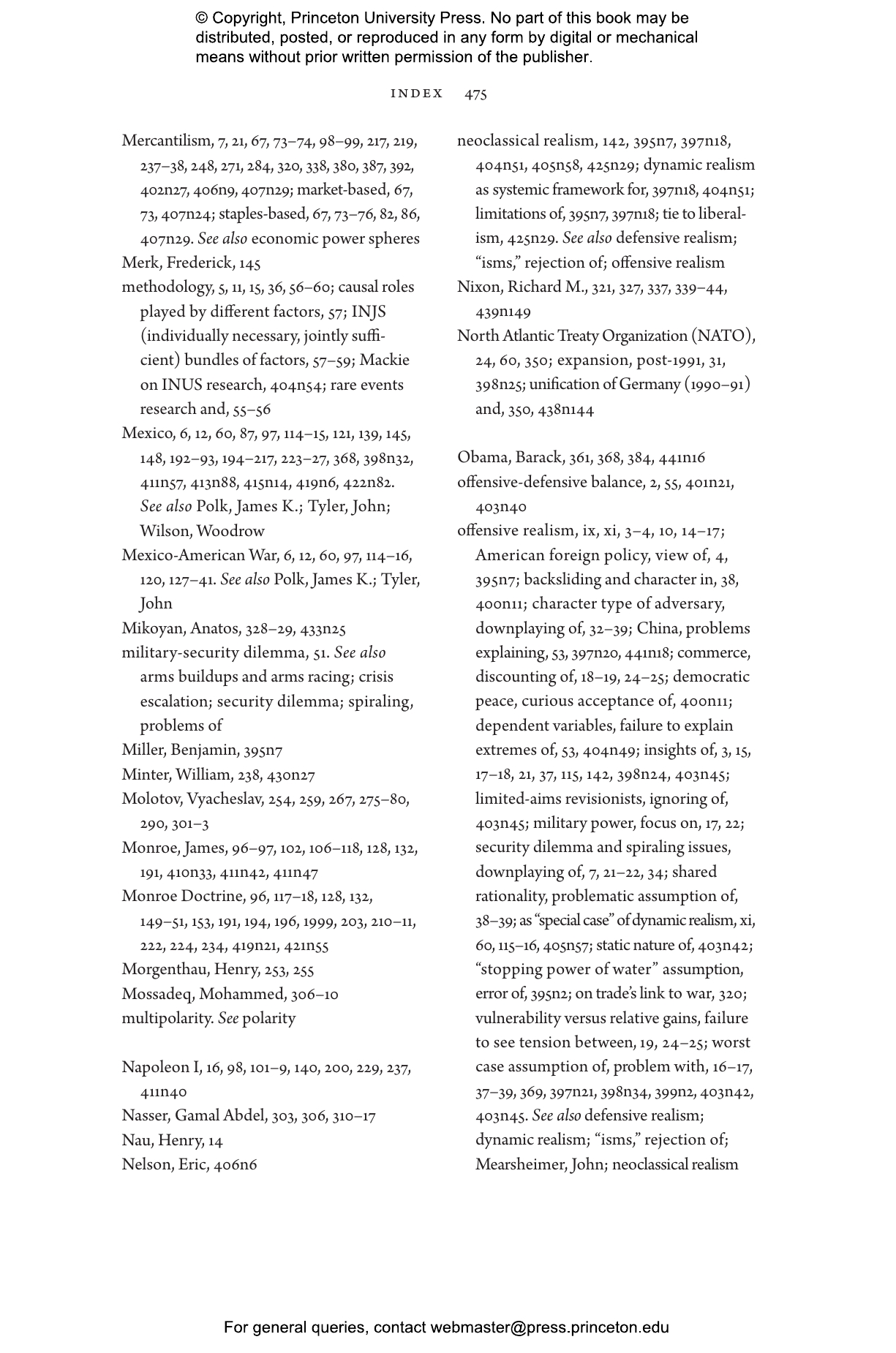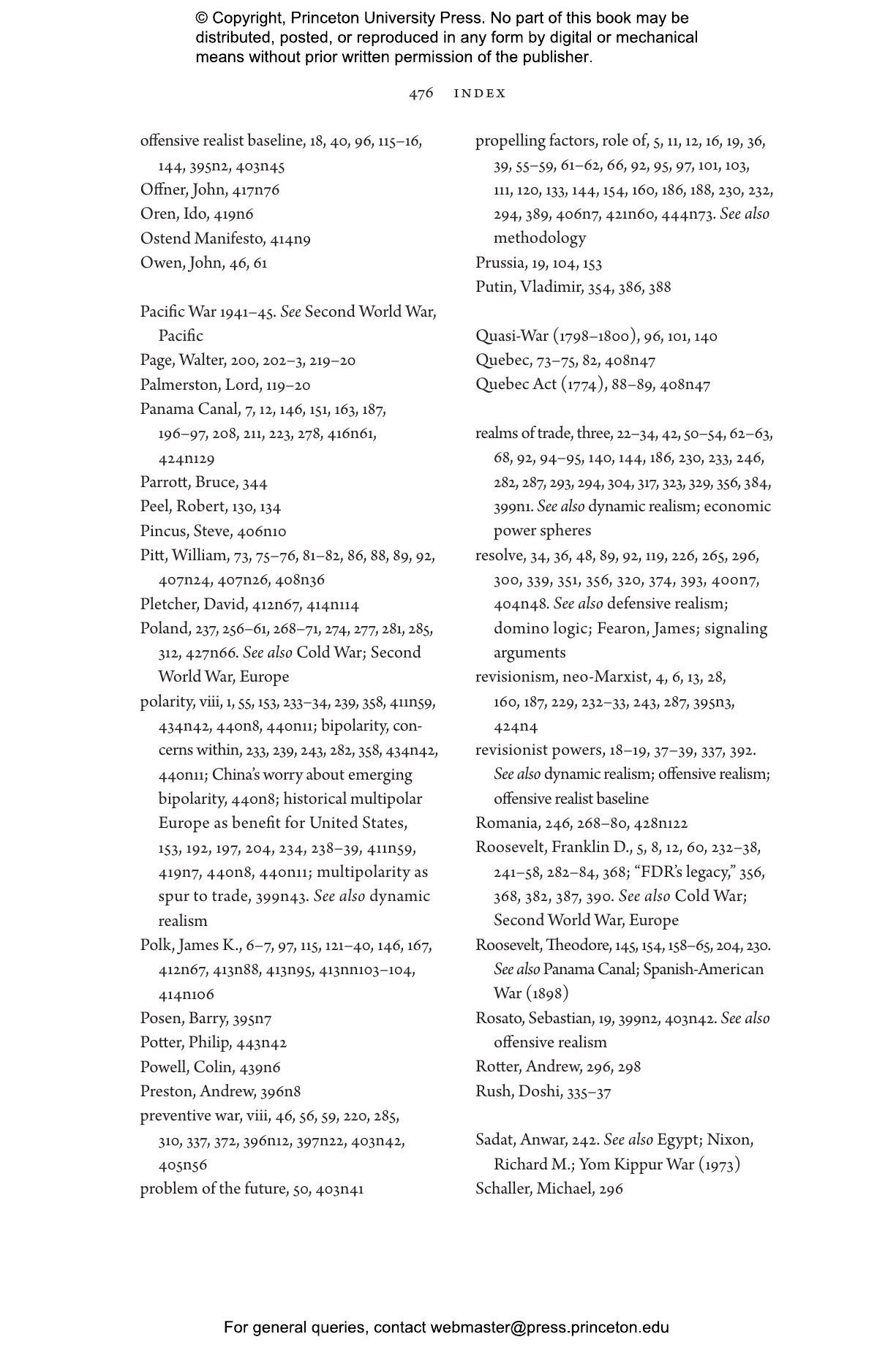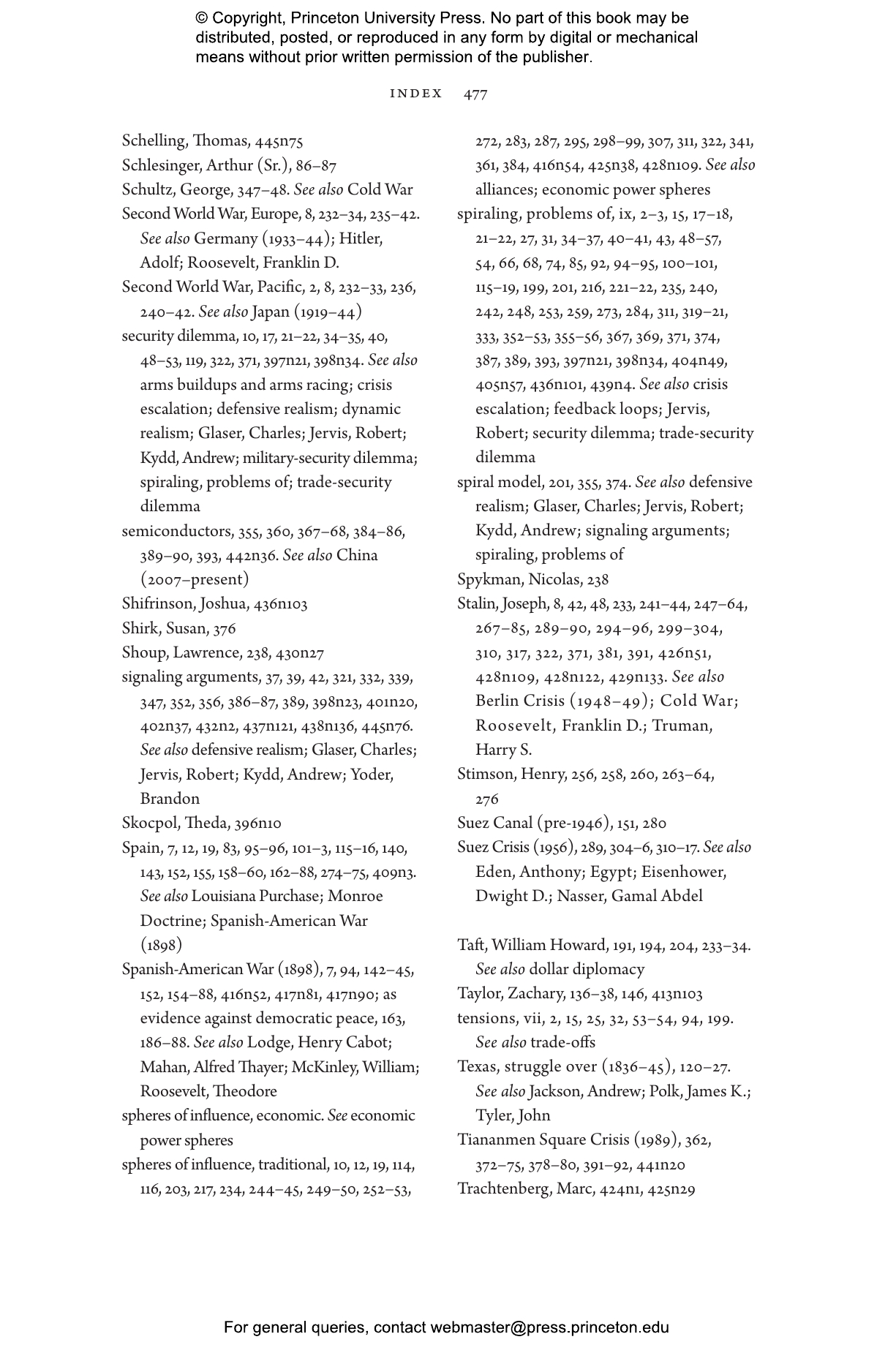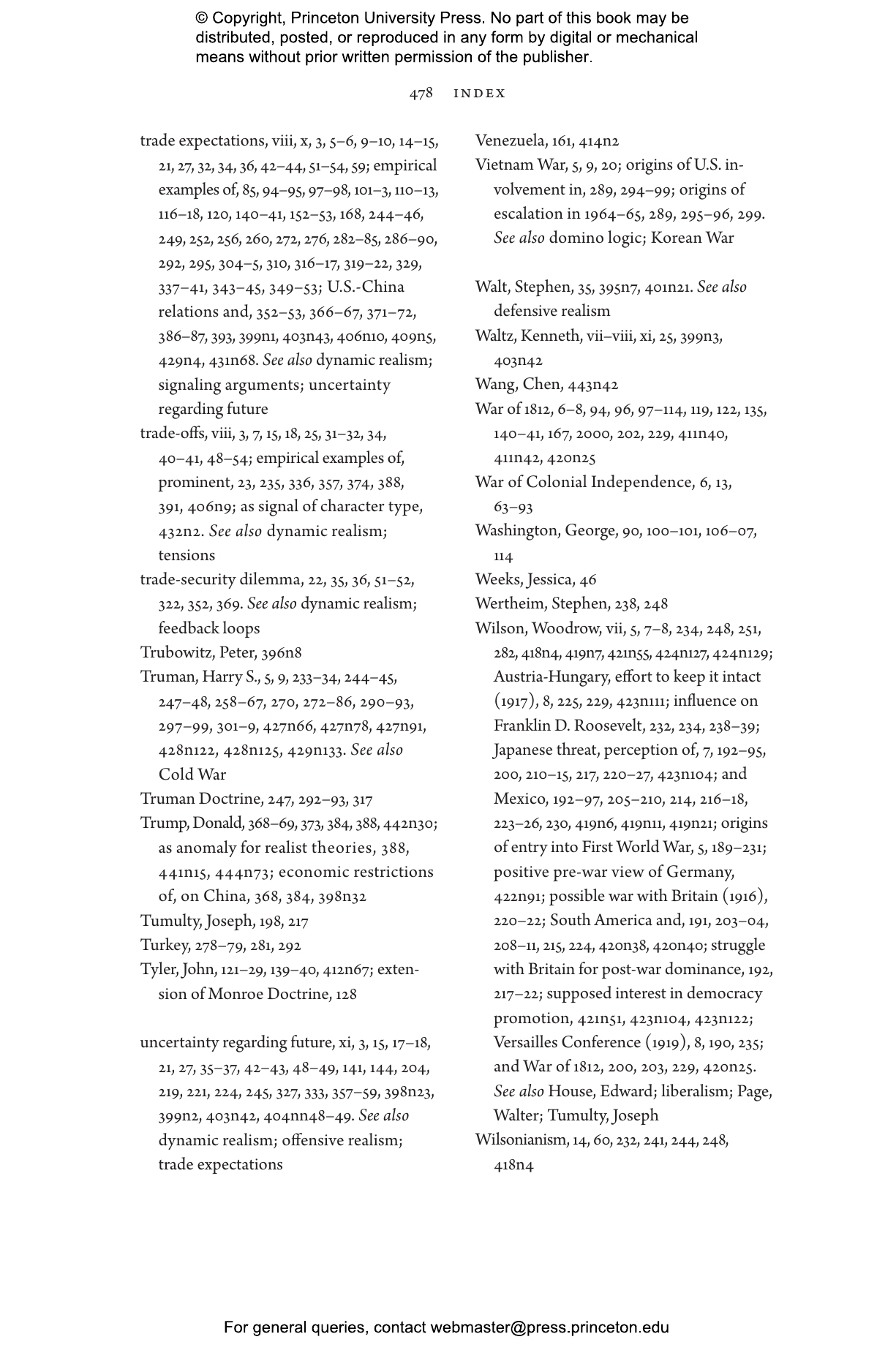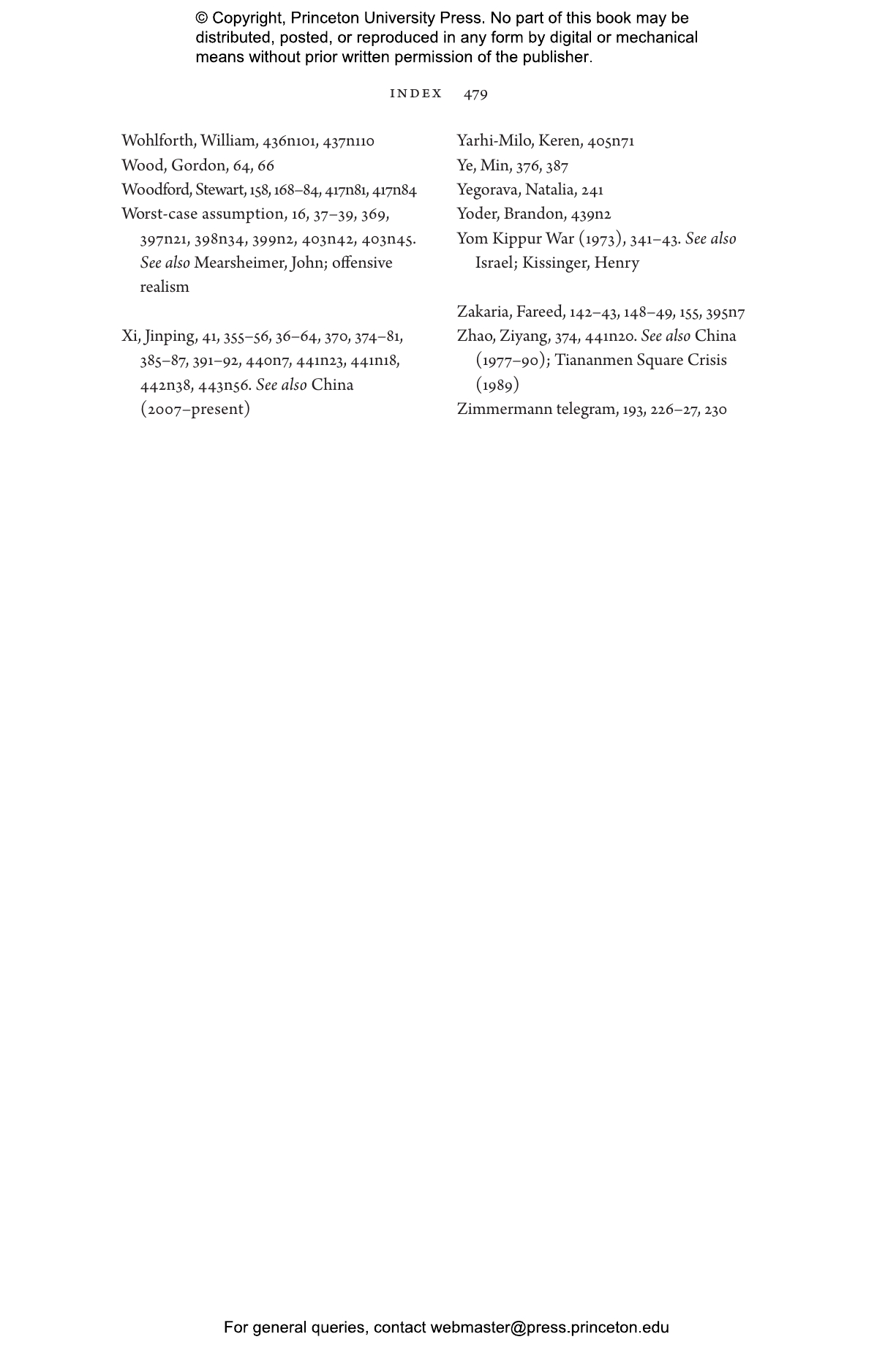When the Cold War ended, many believed that expanding trade would usher in an era of peace. Yet today the United States finds itself confronting not just Russia in Europe but China in the Indo-Pacific, Africa, and Latin America. Shedding new light on how trade both reduces and increases the risks of international crisis, A World Safe for Commerce traces how, since the nation鈥檚 founding, the United States has consistently moved from peace to conflict when the commerce needed for national security is under threat.
Dale Copeland shows how commerce pushes the United States and its rivals to expand their spheres of influence for access to goods even as they worry about provoking a breakdown in trade relations that could spiral into military conflict. Taking readers from the wars with Britain in 1776 and 1812 to World War II and the Cold War, he describes how America鈥檚 leaders have grappled with this inherent tension, and why they have shifted, sometimes dramatically, from peaceful, mutually beneficial policies to coercion and force in order to increase control over vital trade and prevent economic decline.
A World Safe for Commerce reveals how trade competition could lead the United States and China into full-scale confrontation. But it also offers hope that both sides can work to improve their overall trade expectations and foster the confidence needed for long-term peace and stability.
Awards and Recognition
- An Economist What will be the bestsellers in the coming year?
- An Economist Biggest Book of the Year
- Top Ten Global Affairs Reads of 2024, Chicago Council on Global Affairs
- A Chicago Council on Global Affairs Read of the Year
Dale C. Copeland is professor of international relations at the University of Virginia. He is the author of Economic Interdependence and War (Princeton) and The Origins of Major War.
"Magisterial."鈥擝ronwen Everill, Foreign Policy
"[A] fine historical analysis of America’s foreign-trade policies, from the pre-Independence years until the Cold War. . . . A World Safe for Commerce is an important work."鈥擯aul Kennedy, Wall Street Journal
"[A] valuable book."鈥擩essica T. Mathews, Foreign Affairs
"[M]agisterial... a comprehensive examination of U.S. foreign policy from the Revolution to China鈥檚 rise."鈥擬ichael Holmes, Responsible Statecraft
“A World Safe for Commerce is international relations scholarship at its best. It combines offensive and defensive realist theories to provide a sweeping and compelling reinterpretation of US foreign economic and military policy. Copeland’s magisterial treatment will be essential reading for scholars of IR theory, US foreign policy, and international political economy.”—Michael Mastanduno, Dartmouth College
“A World Safe for Commerce is a stunning achievement. It is the first book to provide a single, comprehensive argument to explain the continuities and changes in American foreign policy over the past two and a half centuries. The implications of the argument for US-China relations and the future peace are profound.”—Strobe Talbott, former US deputy secretary of state
“With a sweeping analysis of American foreign policy, Copeland develops a theory of dynamic realism that reveals how economic interdependence shapes grand strategy. Along the way, this provocative book also provides a compelling narrative that connects to current challenges for managing contemporary US-China relations.”—Christina L. Davis, author of Discriminatory Clubs
“Copeland’s dynamic theory of commerce and power politics is a major contribution to international relations theory, and the basis for bold, original, and meticulously researched interpretations of key episodes of American foreign policy. A World Safe for Commerce is a pathbreaking achievement that will help define scholarly debates for years to come.”—Jack S. Levy, Rutgers University
“At a time when America is once again battling great power rivals for control over geopolitical spheres of influence, Dale Copeland’s innovative study shows that the expected impact of trade on military security has always been a key motive for American global expansion.”—Jack Snyder, author of Human Rights for Pragmatists
“A World Safe for Commerce builds on Copeland’s earlier award-winning work blending geopolitics and international commerce in ways that provide a valuable theoretical framework along with keen insights focusing particularly on the United States. The book is both rich in history and bears on critical contemporary global power dynamics.”—Bruce W. Jentleson, Duke University
